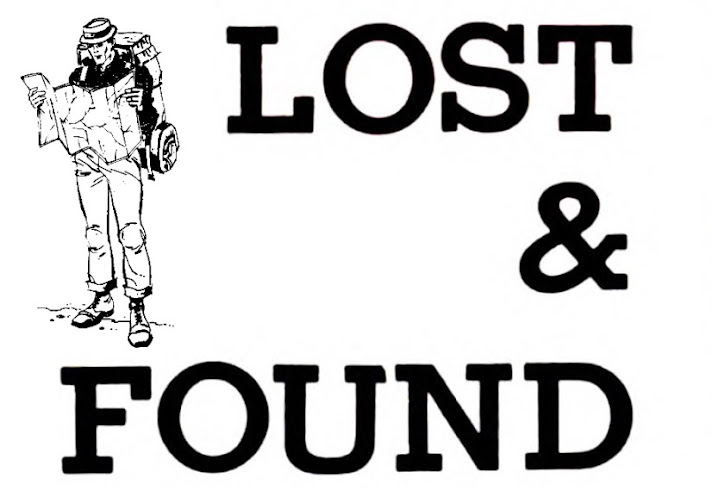Have
you ever been lost1 in the wilderness, have you seen the elephant?
If
you are reading this, either you saw the elephant and lived to tell the tale,
or you have yet to meet up with him. So,
let’s talk about how people come to get lost, and “see the elephant” in
the wilderness, so that we can tip-toe quietly away from him before he sees us.
The who,
where, when, why, and what of getting lost
Every
year, according to a Yosemite National Forest Search and Rescue study3,
4,661 people per year become lost and require rescue every year, which works
out to 13 lost people every day of the year!
So,
who is the most likely to get lost as they venture into the wilderness? As it turns out you’re most likely to get
lost in the woods, the desert, or mountains if you are between 20 to 25 years
old, or aged 50 to 60, and a man. You
are probably hiking (48%), or boating (21%) and it is most likely a weekend
somewhere between June and September, and after two or three P.M. in the
afternoon. That’s not to say you can’t get
lost on other days or other months of the year, in fact February and March are
the deadliest months of the year to get lost in, but rookie hikers mostly hike on
the weekends during the summer months.
Why do people get lost?
Usually, it’s because they don’t think it can happen to them, they fail
to plan and be prepared, and are generally inexperienced.
The Yosemite National Park Search and Rescue study points out some
pitfalls that should be avoided unless you really want to see the elephant! Most lost people, over 30% in fact, take the
wrong trail or leave the trail either accidentally, or intentionally, and then
cannot return to it. The average lost
person is found just over a mile (1.8 km) from where they started, and in fact
is usually just 190 feet (58 meters) from the nearest trail or road. And 9% of lost people misjudge the time and
distance that they must travel, and another 7% get caught by darkness.
So, to keep from “seeing the elephant”, always carry a map, be
familiar with it, the landmarks you should meet on the way and where you are going. Also, know how to use a compass, how to
orient a map and how to locate yourself with landmarks if you get “misplaced”. Always plan in extra time to get where you
are going, and plan to make camp at least two hours before sundown.
Many lost people attempt
to reorient themselves in one way or another, often unfortunately this just
makes matters worse, especially if they suffer from woods shock4 and
begin to panic. Of lost people who try
to find their way out, 42% try route traveling by following trails, roads, or
streams in the hopes of finding civilization, another 26% try backtracking
their steps in the hopes of finding a recognizable landmark or terrain feature.
Sadly, 158 people every
year die from getting lost, that is 3.3% of the 4,661 lost per year, and
another 1,396 are found injured by the rescuers.
Don’t forget to come back next week and read “The
Susquehannocks, True Giants...or Just Big People ©”, where we will talk
about the Susquehannocks of the 17th and
early 18th centuries, and just how big they were.
I
hope that you continue to enjoy The Woodsman’s Journal Online and look for me
on YouTube at BandanaMan Productions for other related videos, HERE. Don’t forget to follow me on both The
Woodsman’s Journal Online, HERE,
and subscribe to BandanaMan Productions on YouTube. If you have questions, as always, feel free
to leave a comment on either site. I
announce new articles on Facebook at Eric Reynolds, on Instagram at
bandanamanaproductions, and on VK at Eric Reynolds, so watch for me.
That
is all for now, and as always, until next time, Happy Trails!
Notes
1
I prefer using the term “misplaced”, instead of “lost” because
misplaced things are ultimately found, but lost things never are.
2
“Been there, done that”, per Oxford Languages, HERE,
is used to express a past experience of, or a familiarity with something,
especially something regarded as boring or unwelcome, as in “I've been
there, done that, got the video and the T-shirt”.
“I
have seen the elephant” is an old story of a farmer who upon hearing that a
circus had come to town excitedly set out in his wagon with
his produce to see the elephant. Along
the way he met up with the circus parade, led by the elephant, which terrified
his horses so much that they bolted and overturned his wagon, scattering his vegetables
and eggs across the road. “I don't
give a hang”, said the farmer as he picked himself up, “I have seen the elephant”. This story has appeared in different forms
over the years, is taken from Time-Life Books, The Forty-niners (New
York: Time-Life Books, 1974), page 80.
3
This study is titled “Ten Years of Search and Rescue in Yosemite National Park:
Examining the Past for Future Prevention” and a copy of it can be requested, HERE.
Also “Search and Rescue in Yosemite
National Park: A 10-Year Review”, can be requested HERE.
4 For
more on woods shock read “Woods Shock, Don’t Lose Your Head! ©”, HERE.
5
For more on tactical breathing read
“The Top Ten Wilderness Survival Skills...Number Three©”, HERE
Sources
Dotson, Ryan; “Statistics
of Getting Lost and Found”, [@2023 Survival Dispatch], https://survivaldispatch.com/statistics-of-getting-lost-and-found/,
accessed March 9, 2024
Kirk, Anthony Rawls, :Seeing
the Elephant”, [©Walter Feller], 1995-2023 https://digital-desert.com/gold/elephant.html
Rocheleau, Matt; “These 6
charts show the most common reasons people need rescues in national parks”, November
18, 2016, [©2024 Boston Globe Media Partners, LLC], https://www.bostonglobe.com/metro/2016/11/18/these-charts-show-most-common-reasons-people-need-rescues-national-parks/rmxtZQhUBrPDx76XIaexrI/story.html#:~:text=The%20most%20common%20factors%20that,%3B%20and%20darkness%2C%206%20percent,
accessed March 9, 2024










No comments:
Post a Comment